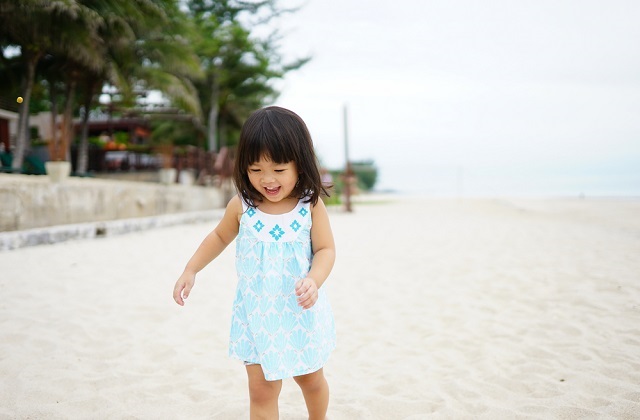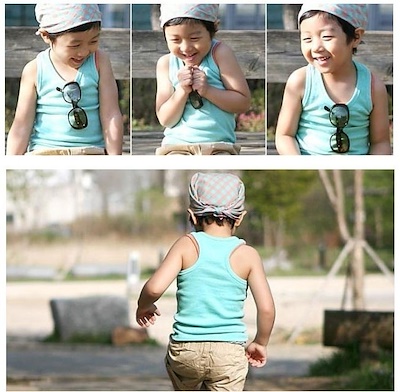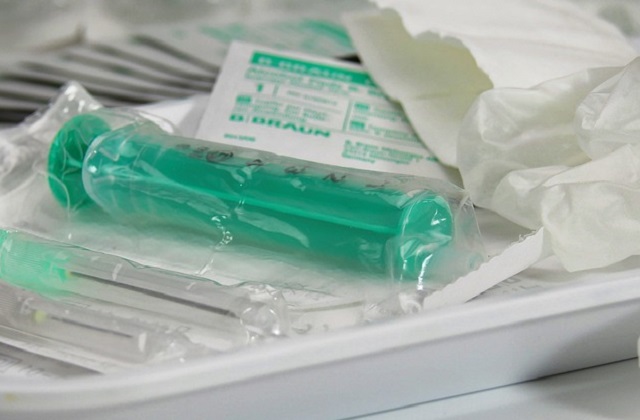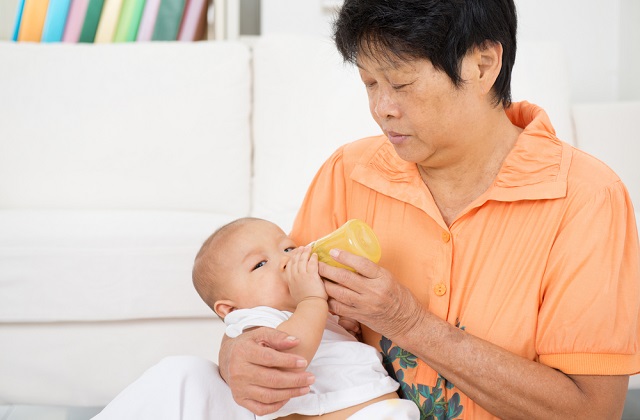How To Prevent Childhood Obesity: Encouraging Physical Activity
Obesity happens when there is a sustained period where the energy intake exceeds energy expenditure. While it is more commonly known to control the diet of your child to prevent or manage obesity, increasing energy expenditure and physical activity is also of equal importance so as to ensure that your child sufficiently expends the energy that is taken into his or her body.
Increasing energy expenditure is especially important in the sedentary lifestyle of families today which is spurred by the use of technology among children. It is proven that both increased physical activity and reduced sedentary behaviour are effective in the treatment and prevention of childhood obesity.
Childhood obesity brings detrimental impacts on the children’s lives as obese children tend to stay obese into adulthood and are more likely to develop diseases like diabetes and cardiovascular diseases at a younger age. However, obesity and these diseases are largely preventable. Hence, preventing and managing childhood obesity is the key to safeguarding your child’s health.
Physical activity is beneficial for your child’s health
Apart from its effects on the control of fatness, physical activity is beneficial for your child’s health. Increased energy expenditure in physical activity reduces the risks of conditions such as coronary heart disease, stroke, diabetes, cancers and other chronic conditions. It also improves musculo-skeletal skills, coordination and enhances cardiorespiratory efficiency in response to physical exertion. It is also proven to promote your child’s psychological well-being.
How to Prevent and Manage Childhood Obesity: Increasing Energy Expenditure
Reduce sedentary behaviour: Starting from young
Being sedentary may be associated with parental education and family socioeconomic circumstances as well as with the hours spent watching television or videos on tablets. Parents need to make physical activity opportunities available to young children.
Infants can be placed prone on rugs on floors when they have developed head control and encouraged to weight bear and when older, allowed to walk and run around the home or the park downstairs. However, parents will have to expect to be more exhausted monitoring their children with their activity. As such, proper discipline has to be instilled to prevent your child from running beyond boundaries or getting lost in the public space.
Physical activity is fun
Bringing them out frequently and encouraging them to walk a little more when they are tired before putting them in strollers will make them grow more used to the idea of being active and push their limits a little further every time.
Simply going out to places such as shopping malls, indoor or outdoor playgrounds will make them feel that physical activity, even if it is just walking or running about, is associated with fun and allows them to get to explore and play with new things. With a cultivated love for physical activity from young, they will grow up to love being active and other sports.
Helping with household chores
Physical activity can be encouraged within the home by encouraging children to take part in household activities. For example, children can be taught how to sweep the floor, practise tidying the bedroom or even fetching items to be discarded to the bin for younger children.
Even though it will be faster if you do these chores themselves, these chores not only encourages physical activity, it also increases independence and confidence in your child. Also, once they become proficient in the tasks, they can relieve you and keep themselves busy.
Limit your child’s technology use
Many children in Singapore are exposed to technology at a young age. However, sitting in front of the television for long hours or watching videos and playing games on tablets or phones, albeit for educational purposes, encourages a sedentary lifestyle and leads to long periods of inactivity. The insufficient energy expenditure, especially combined with high energy intake, may cause obesity in a child.
Instilling discipline and limiting the time they are allowed to watch television or videos on the tablet is crucial to prevent them from developing an addiction to the games or videos to the extent that they refuse to go for other leisure activities such as going outdoors to play as a substitute. Also, it is more beneficial for children to be learning from social interactions and real experiences.
Learning and physical activity can go hand in hand
In a high stress environment in Singapore where studies and the intellectual development of a child is emphasized, parents may seek to cultivate a good reading habit for their child or even give them exercises to complete. While this is good, parents should understand that there should be a balance between health derived from physical activity and academics. Parents should allow their children to learn in an environment outside of books.
For example, parents can bring their children to the Singapore Science Centre, interactive exhibitions, parks and for guided tours in farms to learn and experience the knowledge first-hand. This encourages physical activity, learning through interactions with others and the environment, the love for nature and brings children off their seats and screens.
The minimum physical activity recommended for children is 60 minutes of moderate activity daily.
Enjoyable and interesting activities
Children are more likely to expend energy if the activity is enjoyable for them. For example, playing and building sandcastles by the beach can be interesting for them and allow them to appreciate nature and the sun as well. Swimming is also a fun activity for the family. They can also play in nature settings such as the garden with their siblings. Other fun activities for your child include informal ball games, dancing, skipping, cycling and skating.
Vigorous activity
It is found that raising the physical activity level significantly required high-intensity activity. This is because young children spend long periods of time in bed and sleep and thus, they have to cram their energy expenditure into a shorter period of time. With more parents working, it is unrealistic for them to take their children to play in parks or for walks after school. Hence, a suggestion for you might be to organize the time during the weekends for outdoor activities such as swimming or running by the lake. Possible activities also include jumping at a trampoline park and cycling.
Parents as role models
Children learn their behaviours from their parents and thus, you have to be aware of your influence as role models. Parents can show their children how to be active and show support for the clubs or outdoor exercises that children attend in their preschools or primary schools. It is also important for parents to value physical activity in their everyday lives and like being active to motivate their children to be active as well.
Walking
Walking is an ideal form of exercise for both parents and children. It is habitual, low impact and encourages stamina. It is also more acceptable and less tiring for children for their small physique and allows them to exert themselves a little more. Walks can be made interesting by bringing them to walk by the lake, reservoir or parks like Chinese Garden to look at turtles and different kinds of plants.
Parents can also play music while walking to encourage an ongoing momentum and make walking less boring. Finding friendly companions such as neighbours, friends and other children to walk along with will also make your child feel proud and compelled to continue walking more as they see others walking together with them. Families can also sign up for charity walks.
Encouraging your obese child to exercise
Improve your child's self-confidence and self-esteem
Obese children may feel embarrassed, uncomfortable and unconfident of themselves to exercise. Thus, parents suggest physical activities that can allow their obese child to improve their self-confidence and self-esteem while doing them. For example, parents can induce the feelings of achievement and success in physical activities. For instance, climbing to the top of an indoor structure or the stairs of a park or walking a long distance to a beautiful scenery can promote such feelings of pride and joy.
Toys which encourage physical activity
Parents can also select toys which encourage physical activity such as Nerf guns, walkable toys, trains, cars or simply ask them to tidy their play corner after toys are being scattered all over the floor. Again, forbid them to turn on the television beyond the limits of, for example, two hours every afternoon.
Exercising with their friends and joining clubs
Parents can encourage their child to exercise with their friends and join sport clubs in school. If physical activities can bring them social benefits and as well as fun, they worry less about their appearance and may even aspire to be like their fitter peers and improve their skills.
Family exercises with friends and relatives
Family exercises can also incorporate communal physical activity as the child would be able to receive social support and be encouraged to exercise more. For example, family walks or hikes can include friends and relatives.
Planning a regular time for physical activity
Planning a regular time for activity such as walks on every Friday and Sunday evenings can also ensure adequate physical activity for the child. However, physical activities organised by the family should be gradual in intensity and frequency so as to not put the child off at the beginning of a new active lifestyle.
It takes a village to raise a child !
Join our WhatsApp Groups or Facebook Group to interact with parents about infant care/child care in Singapore..











